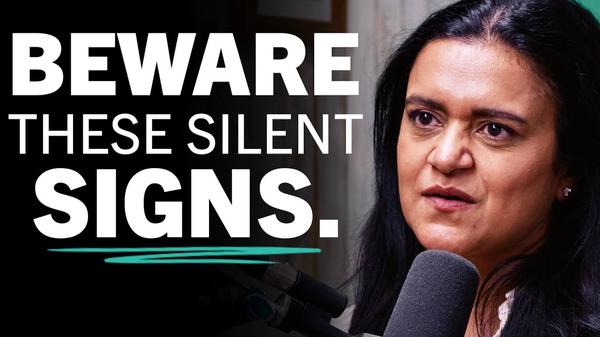How to change your habits: why they form and how to build or break them | Charles Duhigg, M.B.A
Peter Attia
Aug 11, 2025
Mindsip insights from this episode:
Leverage positive reinforcement for effective behavior change
Positive reinforcement is approximately 20 times more effective at producing a desired behavior change than negative reinforcement or punishment.
Reject the 21-day habit formation myth
The popular idea that it takes 21 days to form a habit is a myth; the actual timeline varies greatly depending on the person and the specific habit.
Change habits by replacing routines, not breaking them
You can't truly break a bad habit because the neural pathway remains, so the key is to change the habit by keeping the old cue and reward but inserting a new, better routine.
Gamify savings with weekly spreadsheets for short-term rewards
You can create a powerful short-term reward for a long-term goal like saving money by gamifying it with a weekly spreadsheet, which provides a sense of control and relief from tension.
Utilize stories to enhance deep thinking under pressure
Elite performers, like a pilot landing a crippled plane, use "contemplative routines" such as reframing a crisis with a simpler mental story to access learned habits under extreme pressure.
Model failures to teach resilience in children
To teach children resilience and how to build habits, parents should openly model their own failures as data points for learning rather than hiding them or showing only stoicism.
Learn from each attempt to quit smoking for success
A committed smoker typically needs to try quitting seven times before succeeding, with each relapse serving as a scientific experiment to learn from failure and refine their plan.
Manage willpower to prevent late-night lapses in judgment
Willpower is like a muscle that gets fatigued during the day, which is why people are more likely to have lapses in judgment, such as breaking a diet or having an affair, late at night after hours of making decisions.
Train soldiers to respond to specific cues for effective habit formation
The military effectively builds habits in soldiers by training them to respond automatically to very specific cues, such as a cloud of dust from an IED, rather than more ambiguous ones like the sound of an explosion.
More from
Peter Attia
AMA #78: Longevity interventions, exercise, diagnostic screening, and managing high apoB, hypertension, metabolic health, and more
Ketogenic diet, ketosis & hyperbaric oxygen: metabolic therapies for weight loss, cognition, Alzheimer's & more | Dom D'Agostino, Ph.D.
The evolutionary biology of testosterone: how it shapes male development and sex-based behavioral differences, | Carole Hooven, Ph.D.
The impact of gratitude, serving others, embracing mortality, and living intentionally | Walter Green (#288 rebroadcast)
Thyroid function and hypothyroidism: why current diagnosis and treatment fall short for many, and how new approaches are transforming care | Antonio Bianco, M.D., Ph.D.
You also might be interested in
The Hidden Damage That Happens "Behind-The-Scenes" In The Adult Entertainment Industry, With Former Adult Actress Felicity Feline
How to Set & Achieve Goals | Huberman Lab Essentials
The Science of Erotic Altered States | Biohacking Sex
Neuroscientist: If You’re Feeling THIS, You’ve Lost Touch With Your True Self
Neuroscientist: If You Feel THIS, You're Living the Wrong Life (Unlock The One You're Meant For)








